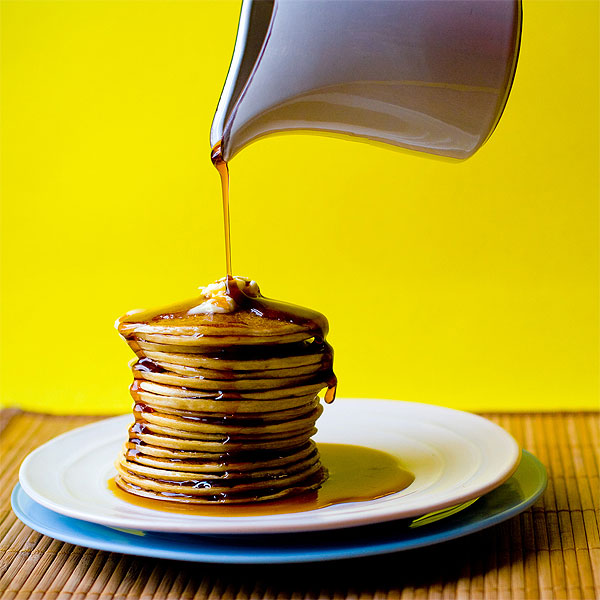 Even though the maple syrup you drizzle on your stack of pancakes may taste as sweet as ever, the tasty condiment is actually undergoing changes that may shed light on the impact of climate change.
Even though the maple syrup you drizzle on your stack of pancakes may taste as sweet as ever, the tasty condiment is actually undergoing changes that may shed light on the impact of climate change.
According to a new study by William Peck, associate professor of geology, and student co-author Stephanie Tubman’08, the burning of fossil fuels is altering the chemical composition of syrup as well as other foods.
Their research, funded by ş¬Đ߲ÝŃĐľżËů’s , was published in the Journal of Agricultural and Food Chemistry and reported about recently in .
What began as a laboratory demonstration to teach ş¬Đ߲ÝŃĐľżËů students about isotope analysis led to the findings, which could have implications for food-quality control.
Initially, Peck and his students didn’t notice anything unusual about the maple syrup samples they collected from throughout New York. “Our intent was really just to see if isotope values varied by geography or if anyone was putting in sweeteners,” Peck told Nature.
But they got a surprise when they compared the samples against isotope values of maple syrup from the late 1970s and early 1980s. Their research revealed a change in the chemical composition of the syrups, which Peck suspected could be attributed to environmental factors.
Upon further analyses of samples from a 36-year time period, Peck’s suspicion was confirmed. The research team found increased amounts of Carbon-12, the isotopic form of carbon that is released through burning fossil fuels.
The research is significant because isotope analysis plays a key role in food regulation; regulators use the isotope makeup to determine if fillers have been added to foods such as maple syrup, honey, and fruit juices.
As a result of environmental change’s impact on the chemical composition of food, it may become more difficult for regulators to determine the quality of food products.
The Nature article noted that “the findings raise the possibility that producers of foods that are monitored…might be able to add cheap sweeteners without being caught.”
Peck and his students celebrated the findings with a pancake party. “Nobody was brave enough to try syrups from the 1970s.”